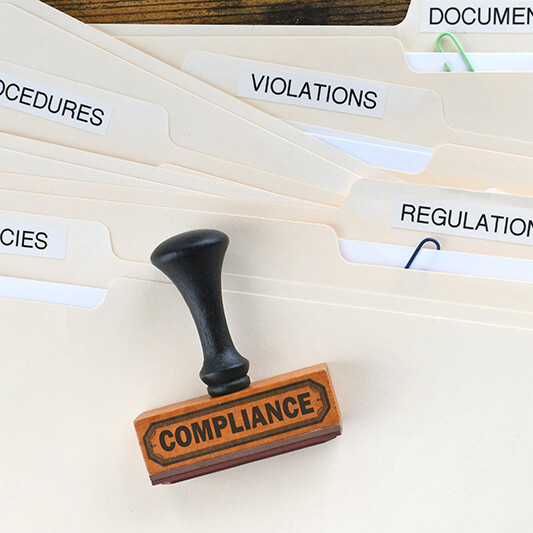SALES TAX COMPLIANCE
Once you’ve determined where you have physical presence or economic nexus, how do you make sure you’re collecting, remitting and filing the correct fees to the correct states? This is where sales tax compliance comes in. It refers to the act of filing sales tax returns with all the various filing jurisdictions.
Why Is Sales Tax Compliance So Complicated?
Before Wayfair, many companies only had to file in their home state, and then maybe a few others in which they had physical presence nexus, so they were often able to do it internally.
However, now that states can define economic nexus, sales tax compliance is tricky for companies to do by themselves; there are so many moving parts. Those same companies that used to file in just a handful of states may suddenly be filing in 25-30 (or more) states, all which have a wide variety of variables, such as:
- Nexus determinations (particularly economic nexus) – when you started doing business in the state could affect sales tax compliance
- How to register – most states do this online, but not all do
- Tax rates – companies selling into multiple states need to be able to quickly calculate rates at the front end of a sale. It’s important to have a software built on to your sales/accounting software to calculate at time of sale.
- Taxability of goods and services – companies with many SKUs or lines of revenue must determine the taxation of each product/service by state to confirm the correct treatment.
- Filing frequency – states can require monthly, quarterly or annual returns to be filed, depending on the level of sales activity
- Due dates – even if you file monthly in all states, the due dates can be the 20th day of the following month, 25th day, last day, etc.


How to Make Sure You’re Using Sales Tax Compliance Best Practices
How to Make Sure You’re Reaching Sales Tax Compliance
There are a few different ways you can “do” sales tax compliance. Here are the four main ways we recommend, as well as which option is generally best depending on your company’s size and nexus:
- Someone in-house does returns manually, which usually means filing each tax return individually via each state’s online portal. This is often a good option for small companies that file in five or fewer states. But companies usually need a better solution.
- An outside bookkeeper or firm files returns manually. This also requires them filing returns through each state’s online portal, so it may be a good option for small businesses that file in 10 or fewer states, but much beyond that and it gets cumbersome very quickly to try to keep up with manual filing.
- Rely on a completely automated software solution, with very little human interaction. There are multiple software solutions out there that calculate how much sales tax to collect and remit, and automatically file the returns for you. This maybe a good option for middle market companies that file in 10 or more states with relatively simple transactions (e.g. they sell online, high volume, tangible property where most items are subject to sales tax). However, we always courage our clients to consider all the ramifications of automation and then also consider the human element. Sometimes the biggest hurdle is the software implementation!
- Work with a compliance provider, which uses the software but also offers more interaction with a real person on the team. This is usually a good option for or larger companies filing in 10 or more states with more complicated transactions (e.g. they sell more technology products, software or SaaS that are subject to interpretation about taxability), higher end products with a larger cost per product and lower volume. Again- a well thought out combination of software and human intelligence is often the best strategy. In addition to picking the option that will lead to most effective sales tax compliance, you’ll want to weigh the cost involved with each of the above options.
Miles Consulting Group can help you evaluate the best compliance solution as there are more factors than the ones included above—there can be a wide variety of factors to consider.
CONTACT US TODAY to determine the best sales tax compliance solution for your business!












